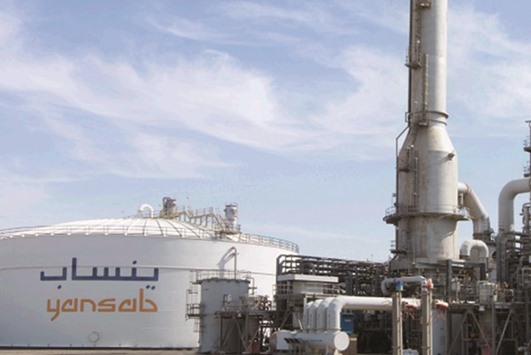Most Gulf stock markets fell yesterday amid soft oil prices and mixed corporate earnings, while Egypt was hit once again by concern about instability in the country’s currency.
Dubai’s index edged down 0.1%.
Dubai Parks & Resorts surged 3.8% but real estate stocks were weak, with Deyaar Development dropping 1.1% after reporting a 17.8% fall in second-quarter net profit.
Blue chip Emaar Properties, which had been rallying strongly for the past two weeks, lost steam. It edged down 0.3% to Dh7.00, failing to break major technical resistance on its October 2015 peak of Dh7.01.
A few small speculative stocks rose sharply including Al Salam Group Holding, which gained 10.6%.
In Kuwait, where its shares surged 5.8%, the company issued a statement saying it knew of no material reason for the unusual trade in its shares.
Saudi Arabia’s index fell 0.5% as Yamama Cement tumbled 5.2% after reporting a 14% year-on-year drop in second-quarter profit to 150.5mn riyals ($40.1mn), and slashing its second-quarter dividend to 0.25 riyal per share from 0.75 riyal.
Petrochemical shares were strong, however.
Yanbu National Petrochemical Co (Yansab) rose 2.8% in its heaviest trade since January after its second-quarter net profit trebled to 689.3mn riyals ($183.8mn) because of higher production and sales — analysts had on average forecast 446.2mn riyals.
Petrochemical heavyweight Saudi Basic Industries gained 0.6%.
Abu Dhabi’s index fell 0.5%, dragged down by profit-taking in merger candidates First Gulf Bank, down 1.2%, and National Bank of Abu Dhabi, off 2.0%.
Qatar also dropped 0.5% because of widespread selling in banks.
Commercial Bank of Qatar, which slumped 6.6% on Wednesday after it missed second-quarter earnings forecasts by a large margin, fell a further 2.0%.
The Egyptian index sank 0.9% as the gap between Egypt’s official and unofficial US dollar rates hit its widest ever because of speculation that the country’s endemic foreign exchange shortage could force another devaluation.
Traders told Reuters they sold dollars at record highs between 11.85 and 12.05 pounds, more than 35% above the central bank’s official rate of 8.78.
An initial devaluation in March prompted a strong rally in the stock market because of hopes it would encourage capital inflows, but this did not happen, and investors are now worried about the risk of a disorderly depreciation accompanied by punishing interest rate hikes.
The central bank governor said after the close on Wednesday that the time was not right to float the Egyptian pound but he left the door open to a possible devaluation.
Elsewhere in the Gulf, the Kuwait index rose 0.2% to 5,391 points, the Oman index edged up 0.02% to 5,818 points and the Bahrain index climbed 0.2% to 1,160 points.

Yanbu National Petrochemical Co (Yansab) rose 2.8% yesterday in its heaviest trade since January after its second-quarter net profit trebled to 689.3mn riyals ($183.8mn).
